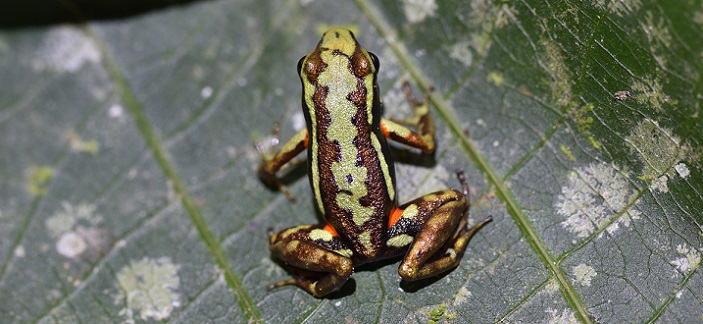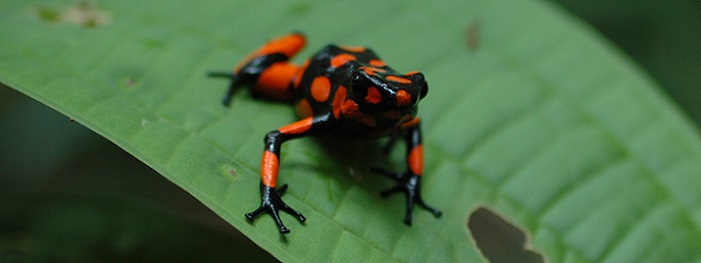Podcast: Play in new window

BOB HIRSHON (host):
Pretty, poisonous frogs. I’m Bob Hirshon and this is Science Update.
Poison frogs defend themselves by secreting deadly toxins. They obtain their chemical defenses by eating ants and mites, and sport bright warning coloration to fend off hungry predators. But scientists have long puzzled over why the frogs themselves don’t suffer from the ill-effects of their own toxins. Now, researchers report in the journal Science that poison frogs evolved tiny genetic changes that protect their brains from the potent neurotoxin epibatidine. UT Austin evolutionary biologist Rebecca Tarvin explains.
REBECCA TARVIN (University of Texas at Austin):
If we consider the toxin a key and its target as the lock, what we’ve found in the poison frogs is they’ve modified the lock and the the key no longer fits.
HIRSHON:
Tarvin says understanding how toxic animals avoid self-intoxication could contribute to the design of new drugs and better pesticides. I’m Bob Hirshon for AAAS, the science society.

